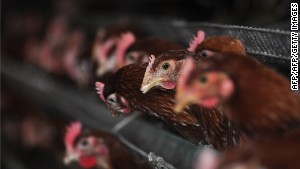Qatar is monitoring on a daily basis the international situation on bird flu influenza A (H7N9) which has killed around 20 people in China, a senior Supreme Council of Health official said.
A (H7N9) is one of a subgroup of influenza viruses that normally circulate among birds.
According to the World Health Organisation, until recently, the virus had not been seen in people. But human infections have now been detected.
The WHO said on its website that there is limited information about the scope of the disease that the virus causes and about the source of exposure, adding that the infection is of concern because most patients have been severely ill.
“There is no indication thus far that it can be transmitted between people, but both animal-to-human and human-to-human routes of transmission are being actively investigated,” the WHO says.
“Bird flu influenza A (H7N9) is not a pandemic as the disease is presently confined only to China and it is being considered as national epidemic in the country. It is only known to be affecting people in five provinces and up to date, some 102 laboratory confirmed human cases including 20 deaths were reported in China as on April 21,” the SEC’s Health Promotion and Communicable Diseases Control (HP & CDC) section manager Dr Mohamed al-Hajri said.
However, he said the SCH is working closely with WHO and the Chinese government through their IHR 2005 focal point in the National Health and Family Planning Commission of China.
“Locally, we are updating our plans for the new type of avian influenza with relevant sectors such as the Animal Health Department and the Hamad Medical Corporation (HMC),” he said adding China is aggressively working on a vaccine to combat the virus.
Dr al-Hajri said the council is also receiving regular updates from WHO and China about the ongoing spread of the virus in terms of the number of infected individuals and mortality trends, spread and characteristics of the influenza virus.
“These re-combinations happen all the time with viruses as it is known within the research communities. Viruses exchange gene fragments through the bird’s breath or excrement. Drinking water or body wastes of one bird can transmit the virus to another. It is similar to inter-person of a respiratory virus,” he explained.
Dr al-Hajri said there have been no cases in Qatar adding the council will update the public if there are cases spreading out of China.
On H1N1 infection, which claimed the life of a Qatari man earlier in the year who suffered from multiple chronic diseases that reduced patient immunity, he said the virus has been downgraded and is now officially being called seasonal influenza.
“The H1N1 vaccine is available and it gives a high protection rate. Seasonal influenza is prevalent all around the world and peaks during winter. We monitor trends of seasonal influenza through our National Influenza Centre situated in HMC,” he said.
Dr al-Hajri said the council diagnoses H1N1 cases in its SARI (severe acute respiratory infection) programme (only acute cases) and most infections due to H1N1 are mild cases and need only mild supportive treatment.
Many cases are not diagnosed because they are sub-clinical or very mild,” he explained adding: “All severe H1N1 cases admitted to hospitals were followed up by medical teams. Health protection and communicable disease control department monitor cases through severe acute respiratory infections programme.”
According to the official, from time to time sporadic cases with risk factors such as chronic diseases, low immunity, being elderly, young children and using immuno-suppressive treatment, may develop influenza complications where they would be admitted to medical wards or medical intensive care unit as per protocols used by HMC.
Majority of the patients recovered from the infection, he said.
Also giving updates about chickenpox, which usually peaks during winter, Dr al-Hajri said the disease, which is vaccine preventable, is prevalent all over the world but is presently under control phase.
“Vaccine provides high protection of up to 98% after two doses and this is included in our national immunization schedule for children. If vaccinated, children who contract the disease will only experience mild sickness,” he said.
The official said most of the reported cases in Qatar were among expatriate workers and their families.






